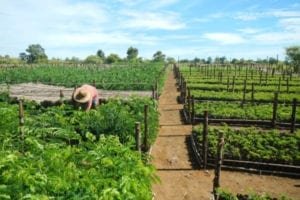Over 300 companies including AstraZeneca, Danone, Firmenich, HP Inc, KAO Corporation, Klabin S/A, Mars, Symrise AG and Mitsubishi Electric have got a place on this year’s A List by environmental non-profit CDP.
This is a major increase on last year, despite the unprecedented challenges posed by Covid-19.
The A List showcases the companies leading on environmental transparency and action, based on their annual disclosure through CDP’s climate change, forests and water security questionnaires.
Thousands of companies disclose through CDP at the request of investors and corporate buyers.
Choosing transparency
This year has seen a major increase (45% up on last year) in the number of companies achieving an A score, with increases across all three themes that CDP assesses.
Along with the high levels of disclosure, this shows growing environmental awareness among the business world in 2020.
For climate scores this is largely because more companies are choosing to be transparent by disclosing data – in itself an important step, driven by increased market pressure for transparency.
The growth in companies scoring an A for tackling deforestation and water security points to increased action in these areas, as the higher levels of disclosure do not fully account for the increase.
Forests is particularly notable as the number of companies on the A List doubled from a low base (16 compared with 8 last year).
Paris turns five
The A List comes just ahead of the five-year anniversary of the Paris Agreement, with world governments expected to deliver updates on their national climate plans to build momentum ahead of COP26.
In November, the UK Government was the first G20 government to announce mandatory disclosure, sending a signal to the market and other governments that they should follow the UK’s approach.
The number of companies achieving a triple A across climate, forests and water, the highest rating CDP provides, has also grown to 10, up from six (the previous record) last year. Symrise AG, Mondi Plc, Fuji Oil Holdings and KAO Corporation are among the new triple A Listers.
‘This week marks exactly five years since global leaders shook hands on the Paris Agreement. It’s encouraging that 70% more companies are now reporting on their environmental action than in 2015, and that, this year, over 300 have reached the A List.
‘Congratulations to these leaders – through their action and transparency they are getting ahead of the pack and will seize the benefits as we transition to a net-zero sustainable economy. CDP data shows growing environmental awareness among the business world in 2020, which is hugely positive considering the unprecedented challenges business and society have faced this year.
‘We have the wind in our sails. Now, we need these pioneers to inspire the sluggish majority of corporates if the private sector is to take a leadership role when climate targets ratchet up at COP26 next year. The race is on.’
DEXTER GALVIN
Global Director of Corporations & Supply Chains at CDP
The A List companies hail from around the globe, with most coming from Europe (132), Asia (100) and North America (61).
The top countries for A List headquarters are Japan (66), US (58), UK (21), Germany (19) and France (18). Last year Japan overtook the US and Asia overtook North America for the first time, with this solidifying further this year.
 Play Video about This Rock Might Just Save The World
Play Video about This Rock Might Just Save The World Play Video about Play 2 hours of rock
Play Video about Play 2 hours of rock Play Video about Play 2 hours of brook
Play Video about Play 2 hours of brook Play Video about Play 2 hours of sheep
Play Video about Play 2 hours of sheep















































